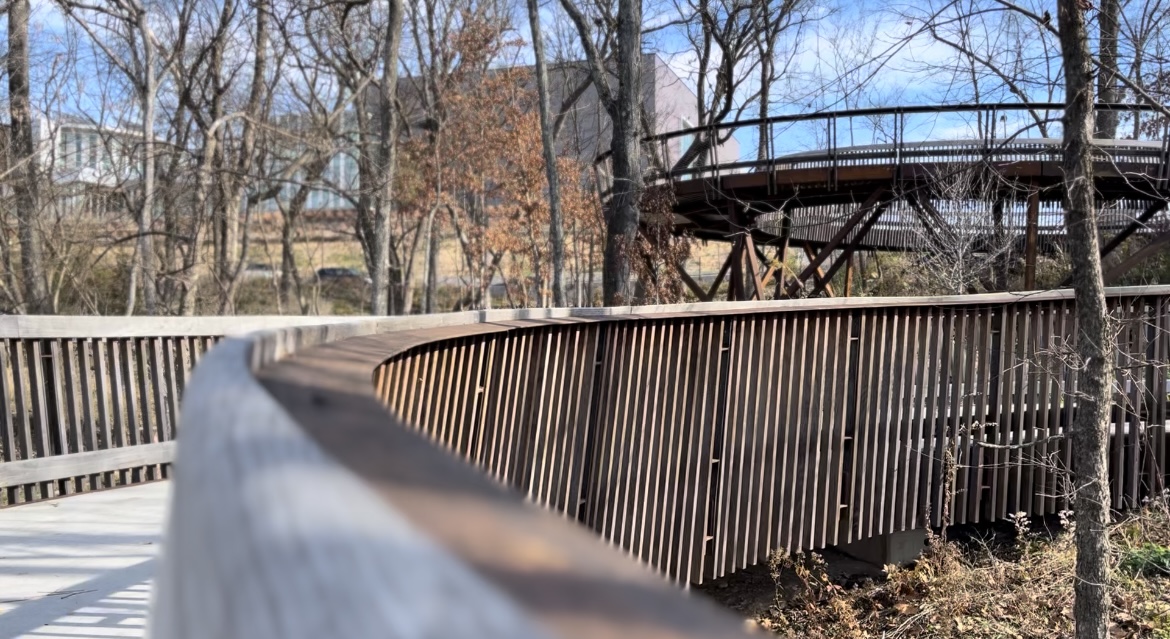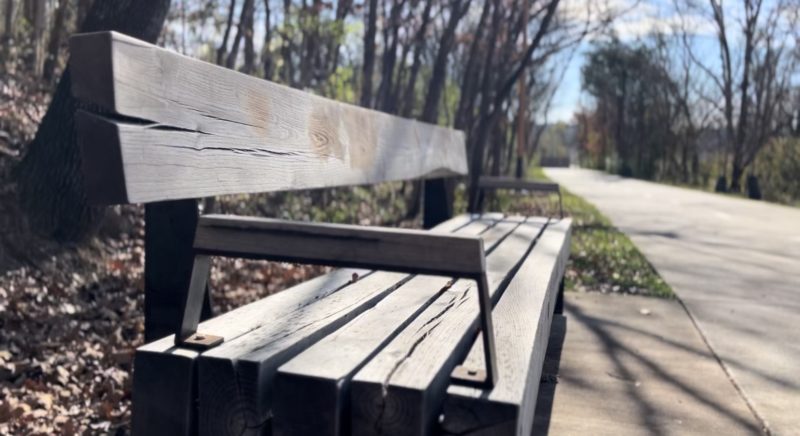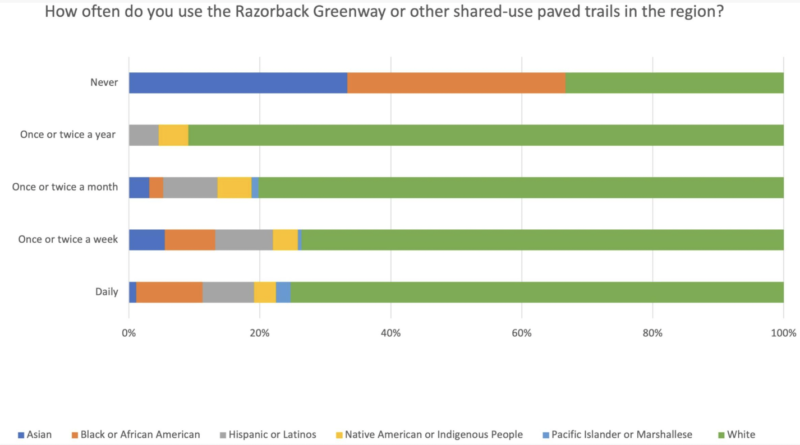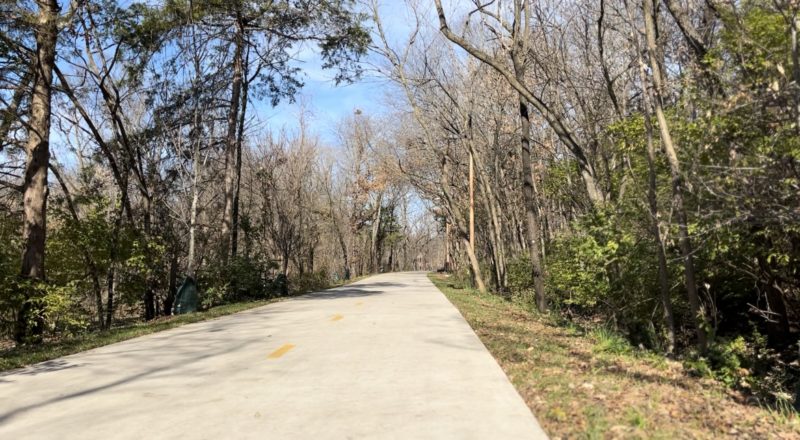By: Katy Kelly
FAYETTEVILLE, Ark. (UATV) – Razorback Greenway managers are increasing efforts to improve diversity on the trail after a 2021 equity report from a local non-profit raised concerns about.
UNVEILING ARKANSAS’ NATURAL BEAUTY
Spanning 40 miles and interconnecting Northwest Arkansas (NWA), the Greenway Trail has become a cycling hotspot, contributing significantly to the local economy. According to the Walton Foundation, the trail brings $137 million in revenue to the area, showcasing the economic impact of this natural gem.
With its humble beginnings in 2008 with only being five miles long, the Razorback Greenway spans all the way from Mount Kessler Regional Park in Fayetteville to Mercy Way Bridge in Bella Vista.
Locals are able to utilize the trail since it connects downtown areas, three major hospitals, 23 schools, the University of Arkansas, and the headquarters of J.B. Hunt, Walmart, and Tyson Foods.
The Razorback Greenway exposes those on the trail to Arkansas’ nature where the vibrant colors of changing trees, meandering streams, and the essence of Arkansas’ native environment create an immersive experience for all.
Not only can people use the trail to experience the natural beauty the state offers, but it can also create a sense of community.
“It’s always been really inviting. There are many places you can stop and meet other people on the trail” Fayetteville resident Adolfo Hernandez said.
EQUITY CONCERNS ARISE IN TRAIL USAGE
While many view the Greenway Trail as a destination for nature enthusiasts and cyclists, a 2021 NWA Trails and Active Transportation equity report from local non-profit Trailblazers has raised concerns about its disproportionate use among minority groups.
Survey participants highlight a lack of inclusion on the trail, shedding light on challenges faced by racial and ethnic minority individuals accessing this:
With growing concern for these issues, those active in the community are finding ways to help increase awareness and accessibility.
“Recognizing the ongoing need for community involvement, Trailblazers established the Trails, Cycling, and Active Transportation Advisory Council. This council has been actively meeting since late summer, focusing on developing an action plan to address inclusivity, equity, and accessibility concerns in the region” Senior Manager for Trailblazers Prentis Grayson said.
The TCAT Advisory Council was created this year with the goal of inclusion for marginalized communities. Their duties include education, access, outreach, and updating their annual equity report maps.
BARRIER TO ENTRY
A possibility for minority groups having a disproportionate use of the Razorback Greenway is the barrier to entry for the cycling community. With the cost of buying a durable bike, cycling clothes, and extra equipment, the costs can be deemed as expensive.
However, those in support of increasing the accessibility to the cycling community and utilizing the Razorback Greenway said there are ways around these barriers of entry to get into the sport.
“You can get an entry level bike from Walmart and use your clothes to cycle. You don’t necessarily need to go out and buy the most expensive stuff to get into cycling” Razorback Greenway Manager Tristan Hill said.
For those who are interested, you can rent bikes from the University Recreation (UREC) outdoors center at the University of Arkansas. Local bike shops offer rental services as well to give those the opportunity to cycle without having to purchase a bike.
Trailblazers also offer free “Adult First Ride” courses at the Jones Center in Springdale. The intention of creating these courses is “aimed at reducing barriers to access,” Grayson said.
TRAIL MANAGER RESPONSE TO INCLUSIVITY ISSUES
In response to the equity report, Hill said he acknowledges the issue and has an eagerness to address it. Hill said he is proactively seeking solutions, and the management team is working on projects aimed at promoting the Greenway Trail to a diverse range of demographic groups.
Being part of helping the cause is “exciting because alternative transportation really is for everybody,” Hill said.
In a move towards inclusivity, those managing the trail are in the planning stage for updating the trail’s signage. The updates will include QR codes that will allow the user to translate the sign into either Spanish or Marshallese. These translations were provided by the donation of UAMS.
Hill said this is with the intention of breaking down language barriers and ensuring a more inclusive experience for all trail visitors.
A JOURNEY OF NATURE, REVENUE, AND UNITY
As the Greenway Trail continues to be a local hotspot for nature lovers and a crucial economic driver, the discussion on inclusivity continues to rise. With ongoing efforts from trail managers and the support of organizations like UAMS and Trailblazers, the goal of these businesses is clear: to make the Razorback Greenway Trail a space where everyone, regardless of background, can connect with Arkansas’ nature and share in the beauty of this trail.





 Source: NWA Trailblazers
Source: NWA Trailblazers



